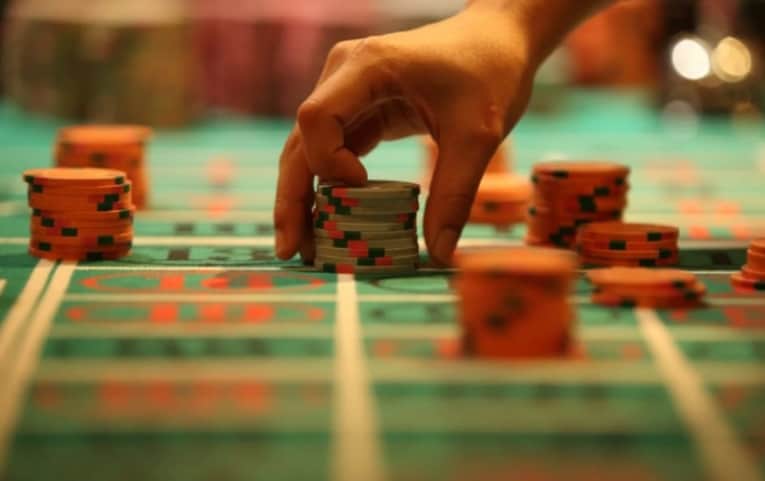
The good thing about Las Vegas is everyone knows it’s a game of chance.
This is good, or only passably bad, for gamblers, since the odds favor the house, but it is very bad for market priests and writers. No one asks why you pulled a deuce — does it have to do with Jerome Powell or the tax law or North Korea?
No, it is just a deuce. If you try to write a column on why the slots have been running against you — was it the time of the year, some recurring seasonal pattern, a plot contrived to suck you in and leave you dry? — it wouldn’t be published. Slot machines don’t remember much, and they don’t conspire.
By contrast, there is an army of analysts and scribes busily employed at sussing out the significance of the daily stock market moves. All that data — Facebook up, GE (of course) down — it must mean something.
The civilization overproduces and (worse) overscrutinizes data. What is your heart rate while ordering a hamachi roll? How many steps did you take on the way to the bathroom?
It would be madness to purport to analyze such statistical excretions, yet that is precisely what the stock market analyst does. No one knows whether the market will go up or down on a given day, and for most days there is no agreed-upon or verifiable reason people sold. And even when there is, it would tell you nothing, because the same number of people, perforce, bought.
The shorter your focus, the closer the market is to perfectly random. Reduced to a time horizon of 24 hours, stock movements have no meaning. The difference from Las Vegas is we don’t know the odds — we don’t even know the factors that determine them.
Vegas in that sense is reassuring. Snake-eyes? Of course. It happens once every 36 rolls.
The market answers to no such arithmetic. So the Dow Jones industrial average fell 1,100 points. Before Monday, based on history, the odds of such a drop were nil; now they are higher than nil. Such history would be useful if the market had a personality. But it doesn’t. It is more useful to think of daily prices for what they are — random noise.
The need to find meaning in random events is human and pervasive. It is why conspiracy theorists retain such purchase. The notion of a crazed, lone killer diverting history from its (intended?) path is disconcerting. It is why it hurts more to lose a game on a silly bounce, a fluke. If the play was planned, well, at least there was a reason. It’s why, if a plane goes down, it’s harder to accept in the case of the passenger who switched her reservation at the last moment. The people who intended to take that flight all along — well, it was in the cards for them.
Nassim Nicholas Taleb calls this the “narrative fallacy.” It is why black swans (his term) seem such a surprise. Life is supposed to stay on the bell curve, follow the norm. There must be determinants beyond the mere collision of atoms.
The need for explanation is why people anthropomorphize the market. They will say, “Wouldn’t it be just like the market to faint one way and weave the other,” as it has done over the past week. Or, “What is the market trying to tell us?” As if the market were a Shakespeare in training, burdened with an epochal message that he — heck, she — chooses to impart only in the most elliptical fashion.
As if the stock market, on any given day, were something other than the sum of actions by millions of people on average not at all “expert” but just as confused and unknowing and susceptible to decisions and revisions that, as T.S. Eliot might have said — did say — a minute will reverse.
You would not gamble your family’s savings at the racetrack — why do it in short-term trading? The odds of success are about the same. Because you can’t know what the market will do — it isn’t knowable, because the knowledge of its future cannot yet exist — one is reduced to anticipating what others will do. As John Maynard Keynes wrote, “We have reached the third degree, where we devote our intelligences to anticipating what average opinion expects the average opinion to be.”
He said that 80 years ago. Nothing has changed.
The escape from the trap is to invest as if the market were not a number that could go up or down but a collection of businesses for some of which, at least, returns over the very long term are very roughly predictable. That would have augured caution when prices were trading at 25 or so times earnings, and when the discount rate (the rate of interest) was rising, conditions that held this past week and, indeed, for some time well before. But leave the sermon on discounted cash flow for another day.
What has happened over the past week is best answered by looking at what the market has done this year. As of Thursday’s close, the Dow was down all of 2 percent for 2018, after having surged 25 percent in the previous year. As J.P. Morgan supposedly said, the market will fluctuate. If you didn’t feel poor on Dec. 31, why are you panicking now?























